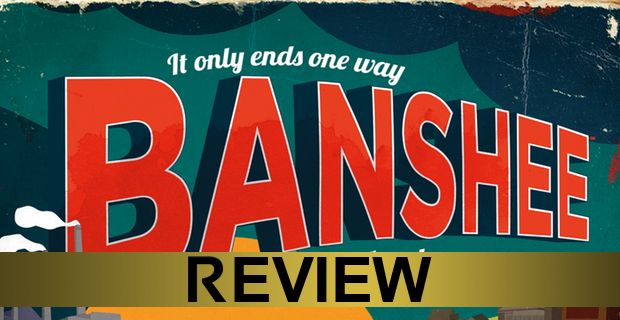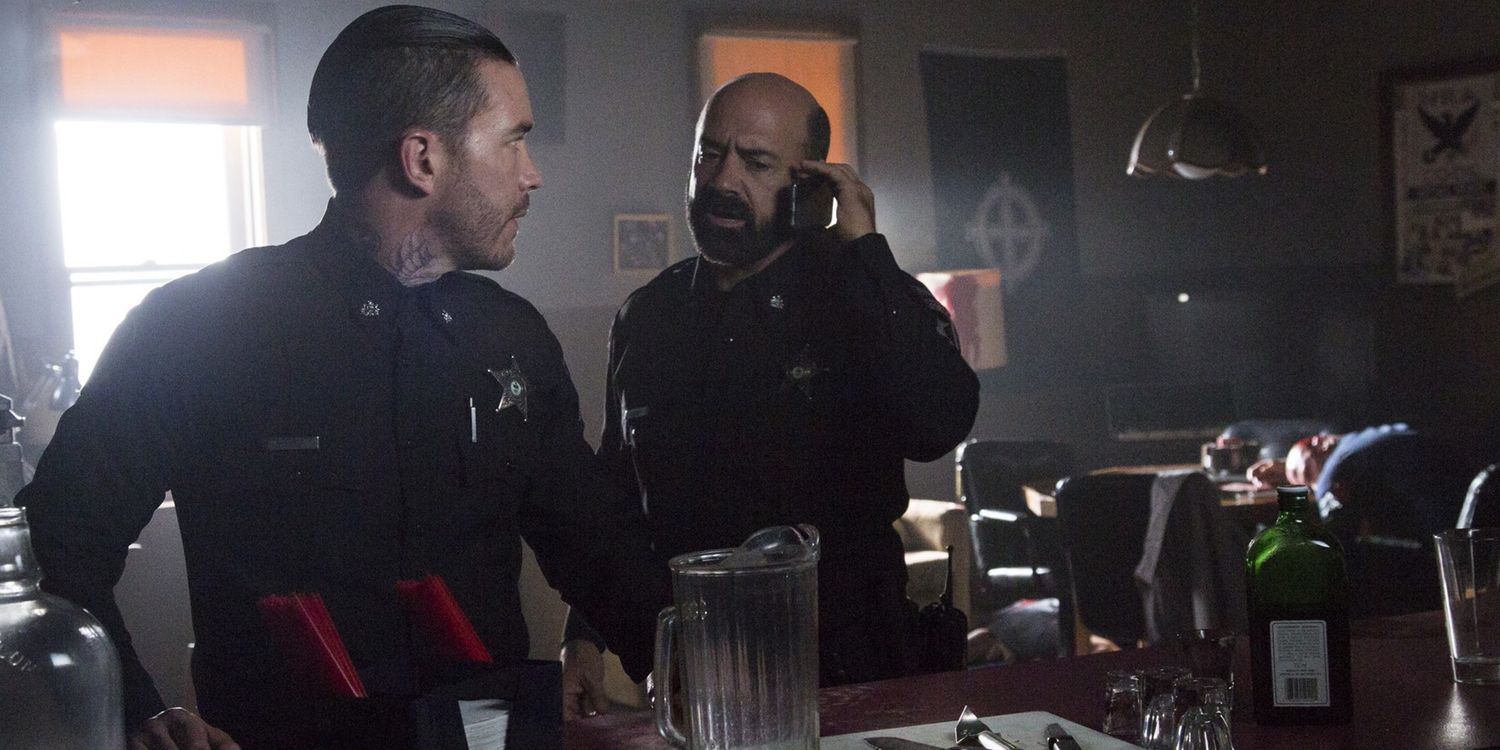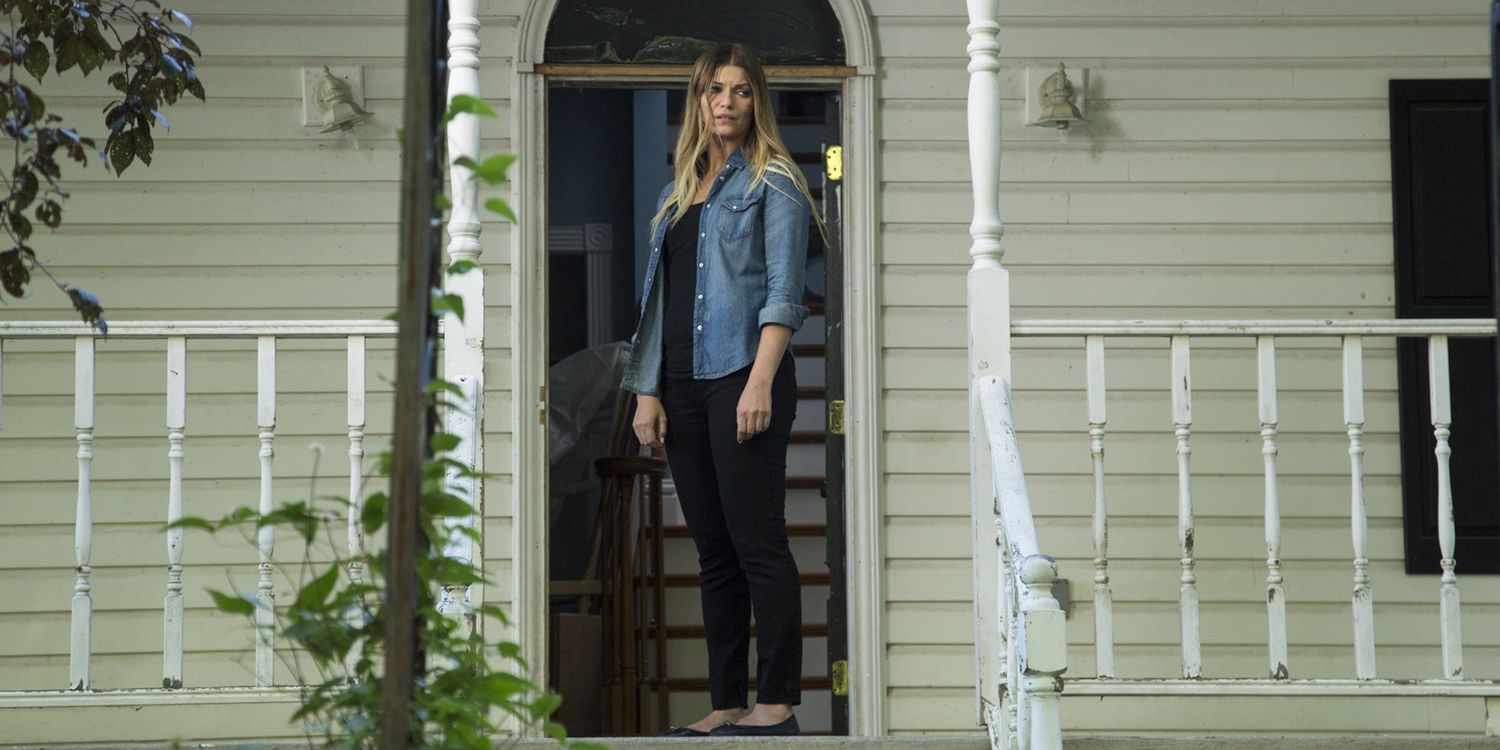[This is a review of the Banshee series finale, 'Requiem'. There will be SPOILERS.]
-
With its reputation for being a pulpy, eccentric, and often-terrific crime series, Banshee stepped into its final season with considerable expectations. The series had always been adept at delivering offbeat elements that somehow felt congruous with the larger character arcs and themes running throughout the overarching idea of a man in search of an identity, so it was no surprise, then, that the show might try its hand at throwing the audience a curveball in its last go-round, one that would not only attempt to facilitate several satisfying endings for the cast of characters inhabiting the not-so-sleepy little Pennsylvania burg, but also work well within the behind-the-scenes changes, like the shift from filming in North Carolina to Pittsburgh, and the fact the series' usual season order of ten episodes had been cut to eight.
Before the season started, series co-creator Jonathan Tropper talked about some of Banshee's greatest hits, like 'The Truth About Unicorns' and 'A Fixer of Sorts' – episodes from which a large part of the show's reputation for taking creative risks came from – and likened the season 4 plot of a Satan-worshipping serial killer within the Banshee city limits to an extended, multi-hour version of one of those unconventional hours. Bode and his horn implants, his devoted followers prone to setting themselves on fire and aiding and abetting in his ritualistic slaying of young women, then, fit the bill of a potentially great one-off episode, wherein Eliza Dushku's drug-addled FBI agent Veronica Dawson could step into the shoes of the great Dennis O'Hare when he walked into the life of one Lucas Hood as Agent Robert Phillips.
All the ingredients for an off-kilter and memorable presentation were there. Bode had a weird but convivial vibe to him – especially when he was mixing some drinks while engaging in casual conversation with Veronica as she was waiting to have her heart cut out – meaning he could have gone down in the annals of great Banshee weirdoes like Burton (or even the obese Brantley from 'A Fixer of Sorts'), but that wasn't to be. The season's storyline needed him to be something more than just a nut job passing through; he needed to convey an actual sense of terror and to create genuine tension, so that Veronica's arrival and the implications of Rebecca's murder could have greater impact on the final season as a whole. While it's easy to see how a serial killer plot line might have given Banshee an interesting edge to cut through the normal narrative rigmarole and difficulties of a final season, Bode and his horns just didn't quite manage to muster up anything outside of the usual unpleasant dreariness that goes hand-in-hand with such storylines.
Had Bode done something more than simply consume a vast majority of the narrative real estate that should have been devoted to characters like Hood, Carrie, Job, Kai and definitely Sugar, there may have been some weight to the murder-filled storyline beyond the dark, surface-level aesthetics of one man bringing about so many unpleasant deaths. But for all of the time devoted to Bode, the storyline was just unable to reconcile itself with the many larger, more important themes running through the show over the course of its latter two fantastic seasons.
With Bode eliminated in last week's bloody and much more Banshee-like hour, the show was able to find its footing for a solid and assured hour of television that didn't miss a beat or waste a minute of what precious time it had left. Finales are a tough business; one that television doesn't often get right. There's a need to acknowledge all that has come before, while still servicing the uncertain future of many characters who will go on living well past the time we get to spend with them. And the Tropper-scripted final hour does a great job of servicing as many of those elements as possible, without leaning too hard on a sense of nostalgia. 'Requiem' is sentimental without being saccharine, making terrific use of the staccato editing style that served to define the series so much throughout its previous three seasons, so that the memories it touched on became important characters beats within the hour, not just a means to service the wistfulness of the fans.
And so 'Requiem' set out to tie up its many loose ends with varying levels of success. The Brotherhood storyline fizzled out for the most part, as there just wasn't enough time devoted to Calvin Bunker's mutiny and the potential threat he posed to Kai and his drug business. It is almost fitting, then, that the whole thing would sputter out when Kai calls in Senator Mitchum (Frasier's Dan Butler) to put an end to the Aryan uprising with a few words. This was the Achilles heel of Banshee season 4: the addition of heretofore-unknown characters who became important to the plot in a mechanical way and only facilitated the movement of certain pieces. While Mitchum's purpose set Kai and Calvin's end in motion, his presence shined a light on other late-series characters like Nina Cruz – who was dispatched without ceremony by Burton in the penultimate episode – and, certainly, Bode.
Still, the finale made up for these inconsistencies where it could. Carrie and Job's dismantling of Kai's drug shipment – which gave Brock maybe his greatest moment in a long line of great moments – helped alleviate the burden of Gordon's death that had been weighing so heavily on Carrie. It was not unlike Job's retribution on the Damon Lindelof doppelgänger Leo Fitzpatrick last week, and helped kick off a series of fulfilling moments that brought everything to a close.
As it cruised through its final set pieces, Banshee managed to do right by just about every character. It would have been nice if Kurt Bunker and his ongoing battle against his brother had been a larger part of the series overall – if for no other reason than to justify the time it was given during the finale – but the show managed to pay it off with his and Brock's discussion of how the law in Banshee sometimes has to be more like Lucas Hood in order to get the job done. That in and of itself became a nice nod to an underlying theme of identity in the show, just as Brock's nod to Hood was the perfect send off between the two men – especially in light of Hood's confession in the penultimate episode.
The various other endings were also in keeping with the tone and themes of the series. To find that Burton had killed Rebecca because he saw her as a threat to Kai's future gave his end at the hands of both Hood and the man he was so devoted to an appropriate sense of finality to a number of important threads. And in true Banshee fashion, Kai goes out in a Tommy gun blaze of glory after a terrific fight scene where Hood faces off against a more skilled opponent but emerges victorious thanks in large part to his astonishing durability.
That sturdiness serves him and the series well, as Hood's final moment with Carrie is perhaps the finale's strongest. Their love for one another is made clear, and yet for them to have wound up together would have felt disingenuous to both their arcs, as Hood calling her Anna, only for her to reply "It's Carrie," spoke volumes about how divergent their paths have become – and maybe always were. It also gives the show about a man in search of an identity a suitable end as the show finishes where it began: in Sugar's bar, with Hood once again a nameless man out in the world for the first time in a long time.
It took some doing to get there, but, in the end, Banshee managed to find itself just in time to go out in style.
-
It's been great covering Banshee over these last few seasons, so thank you to all the readers who've chimed in and watched along with us.



